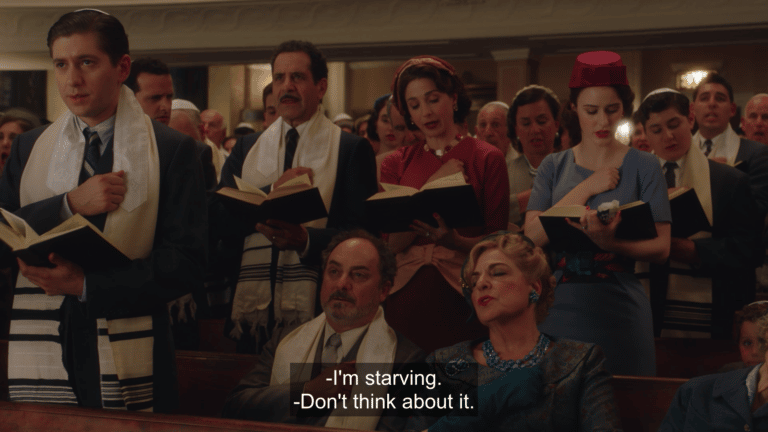
At a glance, the holiday of Yom Kippur might not seem glamorous enough to be featured on the ‘bigger screen.’ It’s the Jewish Day of Atonement, the holiest and most solemn day of the Jewish year, and a 25-hour fast day.
But a surprising number of TV shows have referenced the day and the very-Jewish “The Marvelous Mrs. Maisel” probably takes the cake.
Here are five times Maisel has summed up exactly how we all feel (at one point or another) during Yom Kippur.
“We got the Rabbi!”
The Marvelous Mrs. Maisel’s first season opens in 1958 New York with Midge Maisel planning her annual Yom Kippur break fast.
Jewish viewers can probably relate to Midge’s scramble to get everything in order ahead of the holiday. But this year is an important one, Midge is hosting Rabbi Krinsky, who finally agreed to attend break fast despite his falling out with the Maisels after their wedding.
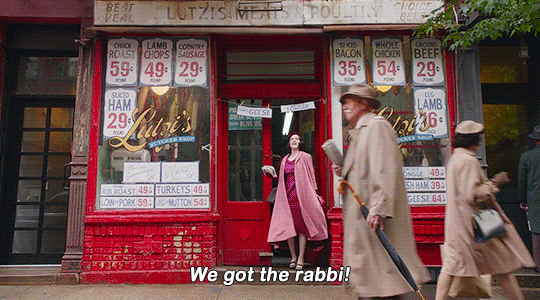
“This year on Yom Kippur, Rabbi Krinsky will be breaking fast at our house!” Midge announces in one of the first scenes of the show, while running an errand at the butcher to pick a prime cut of brisket.
“My mother fainted, then called four people, then fainted again,” she adds.
Nobody’s happy on Yom Kippur
The night before Midge’s long-anticipated Yom Kippur break fast, her husband Joel Maisel delivers some not-so-great news.
“I’m not happy,” he tells her.
“Nobody’s happy. It’s Yom Kippur!” Midge responds. “Tomorrow is Yom Kippur. I have 30 people and a rabbi coming over for break fast and this is the moment you decide to tell me?”
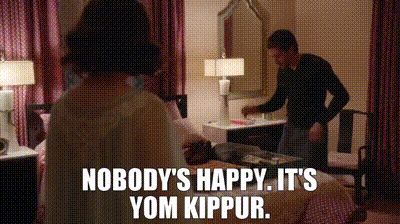
“I’m starving”
Just like the first season, Yom Kippur gets a feature in season two, episode seven. This time, viewers watch the Maisels (Midge, Joel, and his parents) and the Weissmans (Miriam’s parents, her brother and sister in law) attend synagogue for the Neila service (the last of the five Yom Kippur services).
We see the congregation recite the Viddui prayer, the final confessional prayer and the family gently beat their chests as they recite a list of transgressions. (This action is meant to symbolize a punishment for our hearts, which are considered ultimately responsible for leading us to sins of greed, lust and anger.)
“I’m starving,” Noah Weissman whispers while beating his chest.
“Don’t think about it,” the family matriarch, Rose Weissman responds.
“I’ve been thinking about it since dinner yesterday!” Noah counters.
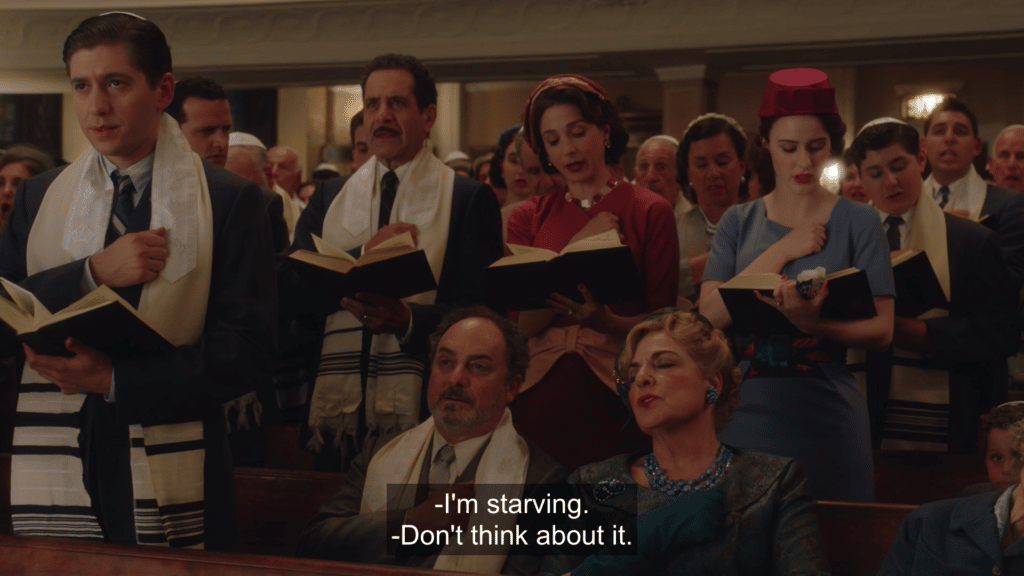
To sit or to stand?
In the same scene, Abe Weissman and Moishe Maisel bicker about who should be standing during the prayer. (Traditionally, all those who are healthy enough are invited to stand for the Viddui prayer.)
“The elder can sit, rabbi said,” Moishe exclaims.
“We are the same age and I’m standing,” Abe retorts.
“Well good for you,” responds Moishe. “You get to be king of the Jews. How’d that work out for the last guy?”
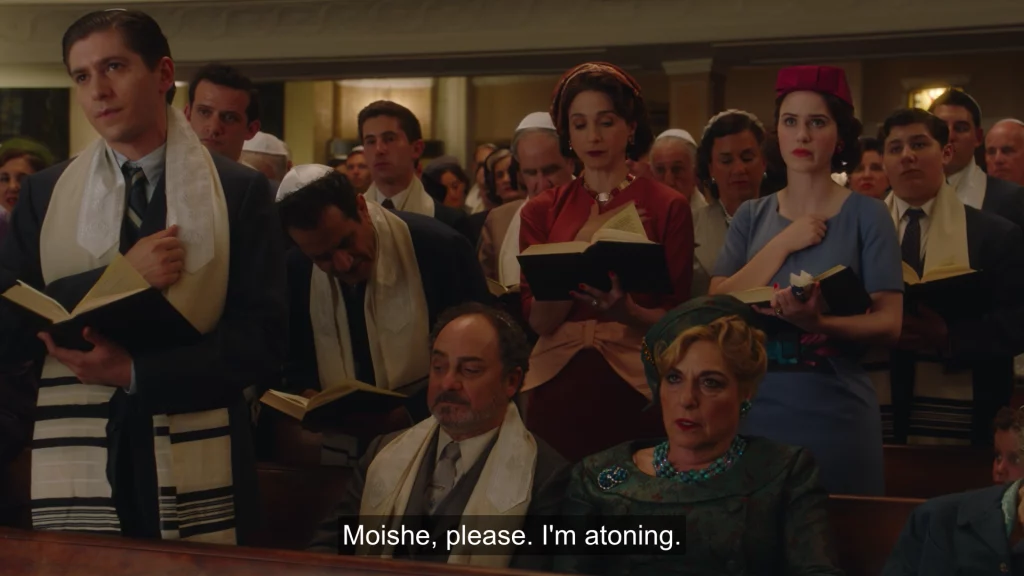
How to get away with ditching dinner
When Midge gets booked for a major gig on the evening of Yom Kippur, she has to make a run for it as soon as break fast is over.
She decides (in line with the themes of Yom Kippur!) to come clean about her stand-up career, which until now has been a secret from her family.
Worried about her timing choice, Joel urges Midge to reconsider telling the family.
“You have a room full of unfed Jews in there,” he says. “That’s a lot of desperation and rage in the air. Right now they’d kill each other for a garnish.”
Originally Published Oct 4, 2022 12:02AM EDT
